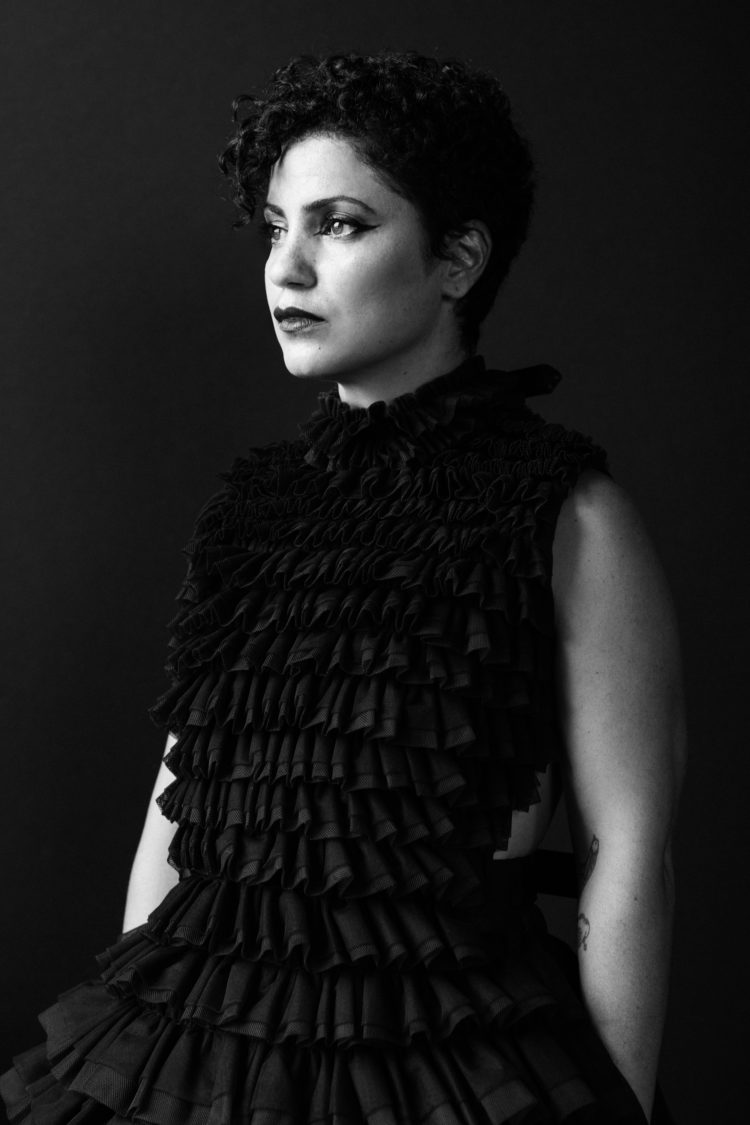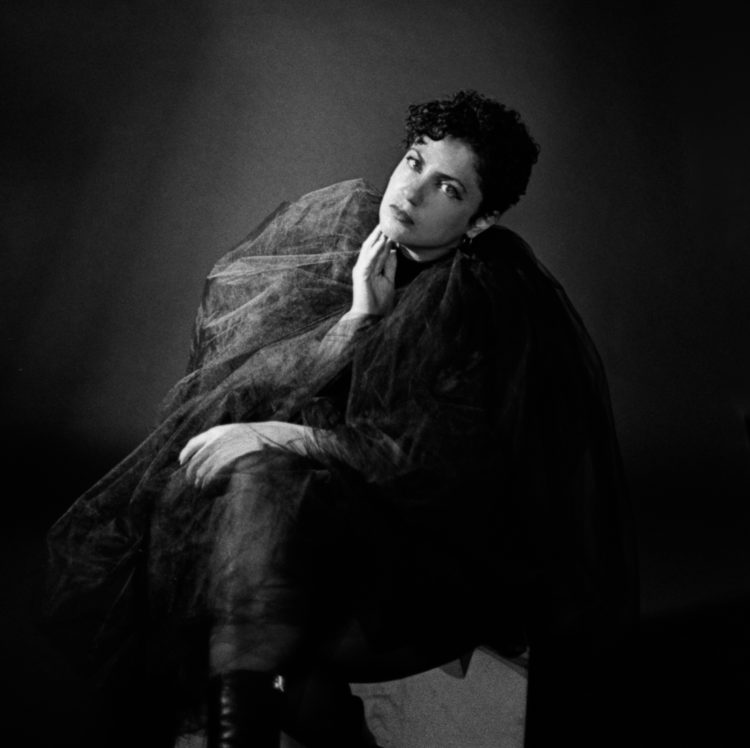It’s hard to believe that it’s been nearly ten years since the world watched the events of the Arab Spring unfold. The hope came with the peaceful actions of all those young people who rose up against authoritarian regimes in often successful attempts to secure a brighter, more democratic future.
In Tunisia, the singer-songwriter Emel Mathlouthi became a voice of the revolution, after her song Kelmti Horra (“My Word is Free”) emerged as a rallying cry for the Arab Spring. In January 2011, the images of young Tunisian protesters in Tunis’ Habib Bourguiba Boulevard were broadcast all over the world, and within weeks crowds were gathered at Tahrir Square in Cairo.
In the last decade, Emel has been spending a lot of time in New York City. As with most musicians, her touring schedule came to a halt with the pandemic hit. Turns out, she was visiting her family in Tunis when Covid started, and she used that opportunity to record a new album in her hometown. The first part of The Tunis Diaries features new versions of some of Emel’s old songs, and the second part has covers of songs by Nirvana, David Bowie, and others.

Why did you choose to record your new album in Tunis?
So actually I didn’t choose, I didn’t even think I would release it as an album at first. It was just a desperate initiative for me to remain creative in the midst of the pandemic, solo parenting and taking care of my father and all coronavirus health requirements.
As I was just visiting, and didn’t have any of my instruments with me, I felt the need to challenge the music world and myself by being productive without the luxury of a home studio and full equipment, so I got a guitar from a fan, found a way to connect my recorder to my computer, and using GarageBand I started recording two songs a day just like at my beginnings, to find an escape from the world and create a new space of raw emotions and simple pleasures.
As the recordings evolved and time went by, I realized it was the perfect environment for me to be creative and get to deeper spaces within myself. I had the best view in the world, cascading white houses till the sea and famous Tunis mountains far away, plus the blue sky and the most beautiful birds tweeting. I was very lucky after all.

How difficult was it for you to re-record so many of your old songs in such a lo-fi environment during lockdown?
At first, I started performing for my online audience choosing songs that I could perform alone, in simple apparel that could still make sense musically.
When I thought about recording those songs seriously, I made a selection of three songs from each of my previous albums and found that I actually had ideas on how to create a guitar arrangement that would trace back to my first inspirations, acoustic metal favorites from the old days and I got really excited.
It became a very creative experience where I really enjoyed creating new arpeggios, even recording the guitar to a tempo which is my least favorite thing, and creating multiple layers on some songs like Dhalem (which has a baroque inspiration) or Sallem (which has more of a psychedelic inspiration).
I realized I have never done that before and I loved giving a new life to each of the songs that ended up on The Tunis Diaries. My selection was also quite eclectic. It didn’t necessarily include the most streamed or most successful hits and I enjoyed that as well.
Your new version of Bowie’s The Man Who Sold The World is such a striking cover. How does one go about covering a classic song that turned 50 years old this month?
I’m very touched that the 50th anniversary of the song is coinciding with the release of my version! I never think too much when covering a song.
At first, the song hits my heart so strongly that it becomes a necessity for me to sing it, whether it comes or whether it doesn’t. The song develops gently and powerfully through me and I don’t search to create anything virtuoso, I just let my voice and emotions take control and see where I land.
It happened twice that I thought I wasn’t doing a good job covering a song, because those songs had already fulfilled their life completely. It’s also harder to cover women, coming from another woman, I feel. The Man Who Sold The World is such a well of feelings and drama. I feel gave myself space to go and explore my own demons.

You are the definition of a borderless, transcultural, global musician. Why did you choose to leave New York, and live between Tunis and Paris?
Well first, thank you!! I only left New York temporarily, and I miss it very badly these days as I realize it’s the place that I call home. Being a touring musician made me realize how much of a nomad I am. Settling into a normal routine life is very hard for me.
But since the beginning of lockdown, I realized how much I missed my Tunis, how much I miss Paris, my second home, how I missed being in Europe. The idea was in me, for the last few years, and last summer I started feeling strongly about going back home for a bit, being close to family, giving my daughter a bit of a normal life, where she could go to school everyday. And I wanted for her to grow up, for a bit, in her mother’s culture for a change.
When the pandemic is over, what is the first thing you look forward to doing, and why?
I think playing in festivals, that is the most fun and greatest thing ever, seeing old friends, traveling all over.
Emel will be doing a livestream on her Facebook page on Dec 4th, at 8pm Tunis time, 2pm NY time.
